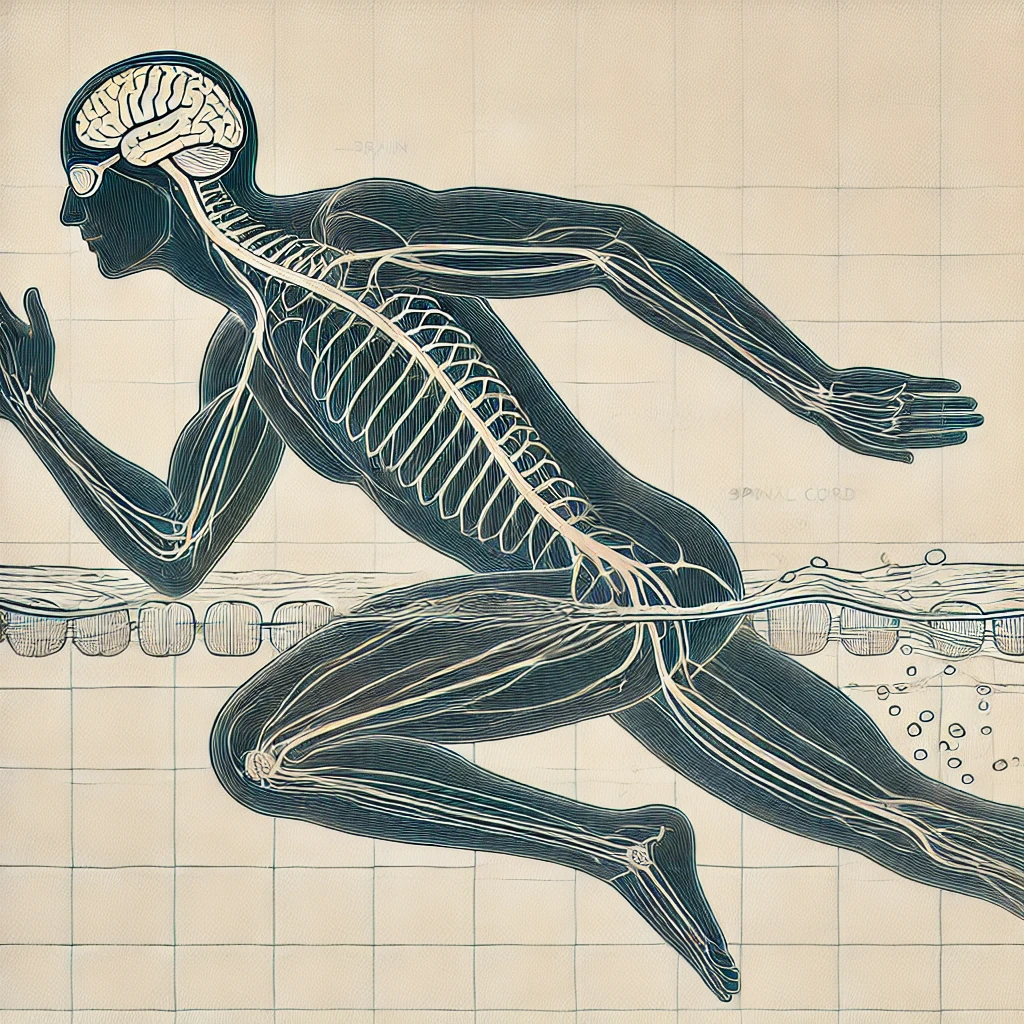Ever wondered how your workout routine impacts your brain and nerves? Exercise is not just about building muscles; it’s also about boosting your nervous system health.
Physical exercise is more than just a way to stay in shape; it’s a crucial component of maintaining and enhancing the health of your nervous system. Understanding how different types of exercise affect your nervous system can help optimize both mental and physical health, making it an essential part of your wellness routine.
In this post, you’ll learn about how various types of exercise influence the nervous system and discover the best exercises for nervous system health.
How Different Types of Exercise Affect the Nervous System
Aerobic Exercise:
Aerobic exercises increase heart rate and blood flow, delivering more oxygen to the brain and promoting neurogenesis (the growth of new neurons).
Activities like running, swimming, and cycling improve cognitive functions and reduce the risk of neurodegenerative diseases.
Anaerobic Exercise:
Anaerobic exercises involve short bursts of intense activity, enhancing muscle strength and coordination.
Weightlifting and sprinting can improve motor skills and support the health of motor neurons.
Flexibility and Balance Exercises:
Flexibility and balance exercises promote neural plasticity and enhance coordination.
Yoga and Tai Chi improve balance and flexibility, reducing the risk of falls and injuries, particularly in older adults.
Studies show that regular aerobic exercise can increase the size of the hippocampus, the brain area involved in memory and learning. Research also indicates that resistance training improves the connectivity between different regions of the brain, enhancing overall brain function.
Best Exercises for Nervous System Health
Maintaining and enhancing nervous system health can be achieved through various types of exercises. Each type of exercise offers unique benefits that contribute to overall nervous system function. Here, we dive deeper into the best exercises for nervous system health:
Aerobic Exercises:
Running and Jogging:
Running and jogging are excellent for cardiovascular health. These activities increase heart rate and blood flow, delivering more oxygen to the brain. This oxygen boost stimulates neurogenesis, which is the growth of new neurons, and enhances cognitive functions such as memory and learning.
To maximize benefits, incorporate interval training into your routine. This means alternating between high-intensity running and lower-intensity jogging or walking. For example, run at a fast pace for one minute, then jog for two minutes, and repeat for 20-30 minutes.
Swimming:
Swimming is a full-body workout that not only enhances cardiovascular fitness but also improves coordination and motor skills. The resistance of water makes muscles work harder, which is beneficial for nervous system health.
Aim to swim laps or participate in aqua aerobics classes. Swimming three times a week for about 30 minutes can significantly boost overall fitness and neural function.
Anaerobic Exercises:
Weightlifting:
Weightlifting strengthens muscles and improves motor neuron function. This type of exercise involves short bursts of high-intensity activity that enhance muscle strength and coordination.
Start with lighter weights and focus on proper form to avoid injury. Gradually increase the weight as your strength improves. Include a variety of exercises that target different muscle groups to ensure a balanced workout.
High-Intensity Interval Training (HIIT):
HIIT combines short bursts of intense activity with periods of rest or low-intensity exercise. This type of training boosts metabolism and neural efficiency, helping to enhance both physical and mental performance.
A simple HIIT routine might include 30 seconds of sprinting followed by 30 seconds of walking, repeated for 20 minutes. Adjust the intensity and duration based on your fitness level.
Flexibility and Balance Exercises:
Yoga:
Yoga enhances flexibility, balance, and neural plasticity while reducing stress. The combination of physical postures, breathing exercises, and meditation in yoga supports nervous system health.
Start with beginner-friendly yoga poses and gradually progress to more advanced ones. Poses like the Downward-Facing Dog, Tree Pose, and Warrior II are great for beginners. Practice yoga at least three times a week to see benefits.
Tai Chi:
Tai Chi is a gentle form of martial arts that improves coordination, balance, and mental clarity. It involves slow, deliberate movements and deep breathing, which help enhance neural function and reduce stress.
Practice Tai Chi in a group setting to enjoy social benefits as well. Classes are often available at community centers or online. Aim to practice for 20-30 minutes a day to reap the benefits.
Incorporating a variety of exercises into your routine can significantly support and enhance your nervous system health. Whether through aerobic activities like running, anaerobic exercises like weightlifting, or flexibility practices like yoga, each type of exercise contributes uniquely to neural function and overall well-being. By following the practical tips provided, you can tailor your workout regimen to optimize nervous system health and enjoy the benefits of a healthy, active lifestyle.

